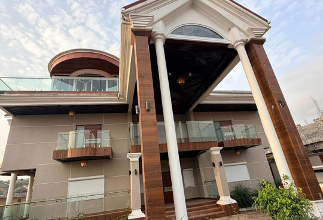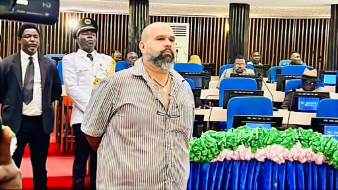As NP & Others Cut Fuel Prices… Is NPRA Losing Control in the Downstream Sector?

By Kelvin Jay
After a prolonged public campaign and civil society pressure for fuel price reduction, Sierra Leone’s oldest oil marketing company, NP (National Petroleum), along with Leonco, has taken matters into their own hands by slashing fuel prices—petrol from Le27.3 to Le25, and diesel from Le27.3 to Le24 per litre.
This significant price drop comes despite the apparent reluctance of the Petroleum Regulatory Agency (PRA) to officially reduce the regulated pump price.
Civil Society Reaction: NPRA Called “Lameduck”
Prominent Civil society advocate, Edmond Abu Jr., has openly criticized the PRA, accusing it of enabling what he called “corporate gangsterism” in the downstream petroleum sector. In his words:
“While oil marketing companies are responding to public outcry by cutting prices, the PRA continues to act like a lameduck regulator—unwilling or unable to enforce fair and responsive price adjustments.”
Mr. Abu, who leads the Native Consortium and Research Center, has been at the forefront of advocacy for transparency in fuel pricing, arguing that global market indicators and forex shifts already justified a price drop months ago.
Is the PRA Still in Control?
The Petroleum Regulatory Agency (formerly NPRA) is mandated by law to set fuel prices based on an official formula, which considers global oil prices, freight, taxes, and exchange rates.
However, the current official price of petroleum products per litre is Le27.3 and that has not been revised for months.
OMCs (Oil Marketing Companies) like NP and Leonco have joined the bandwagon with Zala and Aminata Gas stations to voluntarily lowered their prices, undercutting the official rate.
This raises questions about regulatory consistency, enforcement, and the PRA’s relevance in ensuring consumer protection.
Analysts note that this unusual move wherein companies reducing prices without a directive may reflect Overpriced margins hidden in the regulator’s pricing formula.
The fuel price cut is being seen by some as a loss of credibility for the PRA and, by extension, the government. Others view it as a positive market correction, where companies are finally responding to consumer realities—even if regulators lag behind.
As the cost-of-living crisis deepens, transparency in fuel pricing remains a hot political issue, with implications for trust in public institutions ahead of any future electoral contests.
Moreover, the move by NP and Leonco to unilaterally reduce fuel prices has reignited debate over whether the PRA still effectively regulates Sierra Leone’s downstream petroleum sector.
Until the regulator officially adjusts the national pump price, many will question:
Who really controls fuel pricing in Sierra Leone—the government or the oil companies?





